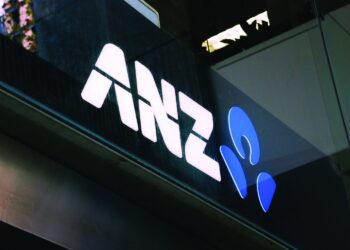Speaking at the ASA Investor Conference last week, Antipodes portfolio manager Vihari Ross said equity markets are at an inflection point, with fundamentals beginning to reassert their influence after years of price action driven by mega-cap concentration and passive flows.
“2023, 24 were examples of momentum-driven markets. Big stocks became bigger,” she said. “But in 2025, you’ve seen almost the gravity of fundamentals exerting itself upon valuations, and that broadening out.”
Ross said her team is now focused on uncovering value through the lens of structural change.
“We think about structural change when it comes to finding value,” she said, highlighting opportunities in European industrial and defence spending, as well as China’s push into artificial intelligence.
“When Trump says, ‘Hang on Europe, you’re going to have to sort yourselves out, we’re no longer supporting you’, could that actually kick-start a new investment cycle?
“If you think about what made the US exceptional, it was this huge investment cycle around semiconductors, around the cloud, and it created a bunch of exceptional companies,” she said, adding that similar dynamics could now be playing out in Europe and China.
She noted that a second Trump presidency could further accelerate this regional realignment.
“You might go, ‘Oh, he is only around for four years’, but he is maybe kick-starting a shifting of those tectonic plates. The future of a company might look very different,” she said.
Ross added that recent market weakness is deceptively narrow.
“The market is only down 5 per cent and it’s down more in the US than the rest of the world. But the shift we’ve seen if just the top of the iceburg. What’s fallen is very concentrated, it’s US tech, large caps. The rest of the market has done considerably better,” she said.
Plato Investment Management’s head of long/short strategies, David Allen, echoed Ross’ view that geopolitics can no longer be ignored.
“For a long time you could ignore geopolitics but you can’t anymore,” Allen said.
He pointed to the US bond market’s reaction to Trump’s tariffs as a sign that the market will not be cowed.
“The entity he can’t bully is the markets, particularly the bond markets.”
Allen expects the trade war with China to continue, while the rest of Trump’s threats taper off. In response to this uncertainty, he said Plato’s portfolio is highly diversified across numerous thematics, pushing back on the notion that diversification limits returns.
“Diversification is the only free lunch in investment especially in a time like this,” he said, echoing Ross’ optimism on Europe. Allen suggested that geopolitical shifts may, in fact, be revitalising the region, adding that the Trump trade has made “Europe great again”.
Meanwhile, Ten Cap’s latest portfolio outlook suggests a more centrist, flexible stance is essential in an environment where policy clarity remains elusive.
“We do not think portfolios should positioned with a strong defensive or cyclical tilt because it is hard to predict trade-related outcomes and hence the resulting impact on financial markets,” the team said.
Instead, the firm is scaling risk up or down tactically as new information emerges.
Ten Cap is slightly underweight China but sees upside in consumer cyclicals as targeted stimulus lifts domestic consumption. They also remain optimistic about domestic cyclicals in Australia amid expectations of rate cuts, and have been buyers of select US cyclicals on weakness.
In property, retail REITs such as Vicinity Centres and Scentre Group are favoured due to pricing power and rental growth, while residential plays like National Storage are being added as housing sentiment stabilises.
Ten Cap also added growth leaders including Life360, Xero and Cochlear during April’s volatility.
“When companies that show market leadership have secular tailwinds and a proven ability to compound earnings are trading back at attractive prices, we are prepared to look through the noise and buy them,” the team said.
As policy uncertainty and global realignment reshape capital flows, one theme is consistent – the world investors knew over the last decade may not be coming back.







